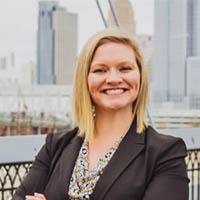Decatur Estate Lawyer, Ohio
Sponsored Law Firm
-
 x
x

Click For More Info:
-
R. Lasko Co. LPA, LLC
1406 W 6th St STE 200, Cleveland, OH 44113» view mapBusiness, Estate, Real Estate, Employment Competent Legal Representation
Let R. Lasko Co. LPA, LLC handle all your legal needs today!
216-574-2602
Tyler Earl Cantrell
✓ VERIFIEDGeneral Practice
Tyler was born and raised in Adams County and is a graduate from West Union High School. He then went on to college at Shawnee State University and t... (more)
Tonya Shur VanBenschoten
✓ VERIFIEDDivorce & Family Law, Bankruptcy & Debt, Wills & Probate, Estate Planning, Collaborative Law
Tonya handles all aspects of family law- divorce, dissolution, separation, custody and support. She has extensive experience with each element from... (more)
FREE CONSULTATION
CONTACTJohn H. Lawler
Commercial Real Estate, International Tax, Estate Planning, Elder Law
Status: In Good Standing Licensed: 37 Years
John Herbert Lawler
Commercial Real Estate, International Tax, Estate Planning, Elder Law
Status: In Good Standing
Julie Ann Mcconn-Pirman
Tax, Real Estate, Federal Appellate Practice, Estate
Status: In Good Standing Licensed: 46 Years
Patrick Lee Gregory
Real Estate, Estate, Corporate, Business
Status: In Good Standing Licensed: 46 Years
Fred Jerome Beery
Real Estate, Government, Estate, Personal Injury
Status: In Good Standing Licensed: 51 Years
 Ronald Lasko Cleveland, OH
Ronald Lasko Cleveland, OH AboutR. Lasko Co. LPA, LLC
AboutR. Lasko Co. LPA, LLC


